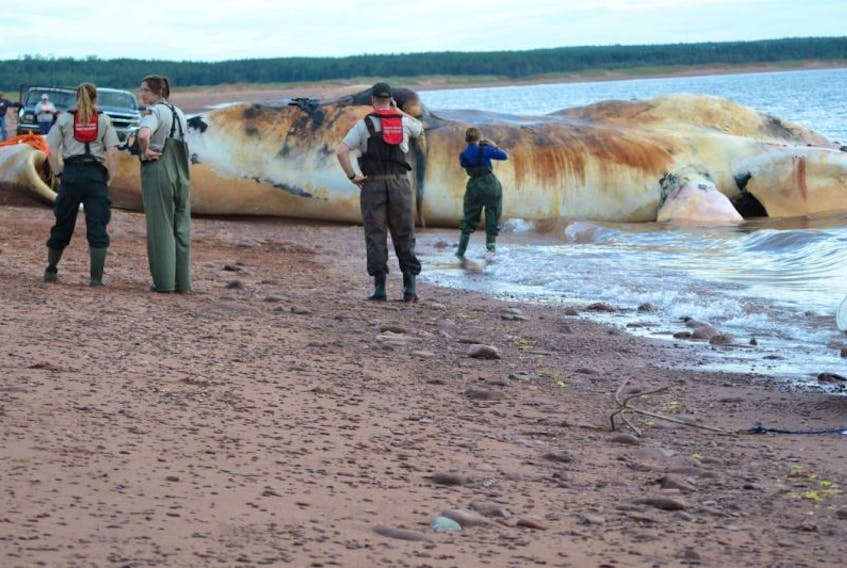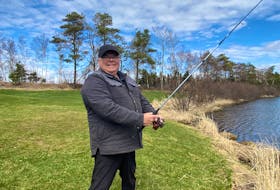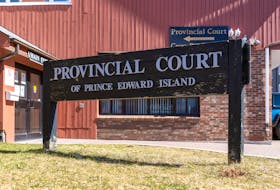A joint news release issued late Monday by the Canadian Wildlife Health Co-operative – Atlantic Veterinary College and the Marine Animal Response Society, outlining some of the initial findings.
“Based on preliminary observations, there is reasonable suggestion of blunt trauma in two of the animals, although underlying problems that may have predisposed these animals to this trauma cannot be ruled out at this stage. The third animal had a chronic entanglement,” the report indicated.
Six North Atlantic right whales were found dead in the Gulf of St. Lawrence since June 6, an unprecedented die-off that attracted world-class specialists to the Phee Shore beach in Norway in an effort to pinpoint the cause so that steps might be taken to prevent further loss. Experts believe there are less than 525 right whales in existence in the entire world. One of the dead whales was found entangled in fishing gear.
The search for answers was a joint effort between Fisheries and Oceans Canada (DFO), the Marine Animal Response Society (MARS) and the Canadian Wildlife Health Cooperative-Atlantic Veterinary College/UPEI. Expert support was provided onsite by colleagues from the University of North Carolina Wilmington and the Animal Health Center, British Columbia. Assistance for the necropsies was provided by colleagues, students and volunteers with the Atlantic Veterinary College/UPEI, MARS, Université de Montréal, Fisheries and Oceans Canada, the Province of P.E.I., NS Department of Natural Resources, NB Museum, Canadian Coast Guard and the US National Oceanic and Atmospheric Administration. Additional support was provided by Le Réseau québécois d'urgences pour les mammifères marins, Environment and Climate Change Canada, the Marine Mammal Commission and scientists in Canada and the US.
In all, more than 40 people from various organizations and agencies assisted with the necropsies which started Thursday morning, June 29 and concluded on Canada Day evening. About 15 of the participants were there from start to finish. The necropsied whales were in varying states of decomposition.
The report lists vessel collisions and entanglement in fishing gear as the main threats to the surviving population of right whales. Contaminants, acoustic disturbance and habitat degradation are additional threats.
Two skeletons spoken for

MARS director Tonya Wimmer said the skeletons of two of the carcasses are spoken for: one by the Royal Ontario Museum and one for Fisheries and Oceans Canada Gulf Region.
A team from the museum and officials for a company that does re-articulation were onsite Monday examining those carcasses. The third whale, as well as blubber and flesh removed from the two skeletons that will be rearticulated, have been buried near the necropsy site.
“They will still have some work to do to clean them up and to pull out each individual bone,” Wimmer acknowledged.
It has not been determined whether necropsies will be performed on any of the other three dead North Atlantic right whales or a dead fin whale which was spotted east of P.E.I. last week.
MARS took part in a necropsy of a blue whale in Nova Scotia earlier this year.









